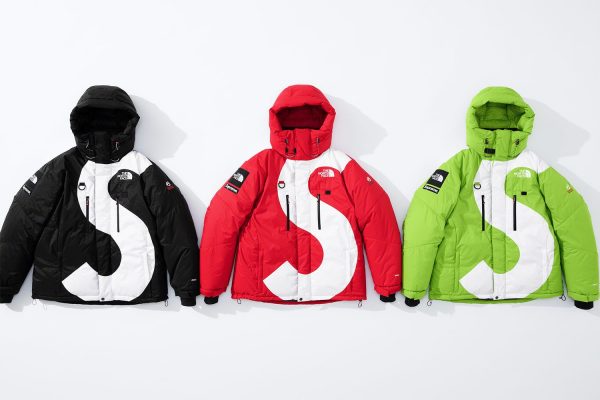Steve Rendle, VF’s chairman, president and chief executive officer, stressed in an interview with WWD that the closely watched street brand is going to stick to its knitting under VF’s ownership.
“This will take time,” Rendle said. “We talk about a light-touch integration with this business because it’s very successful, operating at a very high level today. We’ll take our time to get to know each other. This brand will continue to operate as it always has, we do not look to come in and make any changes. We’re here to help, support and enable.”
Jebbia added in a statement: “We are proud to join VF, a world-class company that is home to great brands we’ve worked with for years, including The North Face, Vans, and Timberland. This partnership will maintain our unique culture and independence, while allowing us to grow on the same path we’ve been on since 1994.”
Supreme is more of a direct-to-consumer based brand with a vibrant web business and very strong brand profile.
Just as VF can offer Supreme operational support, and international and data savvy, Supreme can also teach VF some things.
Rendle pointed approvingly to the brand’s “approach to consumer engagement, their thoughtful focus on delivering quality product at a really consistently high rate and their deep understanding of what their customers are expecting.”
He also noted the deal fits squarely into the evolution of VF, which jettisoned its mass denim business, moved to Denver and has been focusing on the direct-to-consumer business and working to put the consumer at the center of all it does.
Supreme stays famously close to its consumer, a devoted following happy to line up in the rain to get the latest looks. Jebbia has built a monster brand that still has just 12 stores and its e-commerce site, which generates over 60 percent of its revenues.
By selling to VF, Jebbia and team join a company known for successfully bringing brands onboard without losing their DNA.
And as different as they are, VF and Supreme play in many of the same spaces.
“We have a good understanding of this customer,” Rendle said. “About $3 billion of our revenue is already derived from adjacencies to this marketplace, but Supreme sits at the center of this aspect of the market and we couldn’t be more expected to have them join us.”
Scott Roe, executive vice president and chief financial officer, said VF is buying 100 percent of Supreme and that, while the deal initially values the company at $2.1 billion, that number could rise with a potential earn out.
Roe described that as a “very fair price on both sides.”
It also shows considerable growth in the valuation at Supreme, which saw The Carlyle Group buy a 50 percent stake at a $1 billion valuation in 2017 (see it here).
VF is clearly buying Supreme for its brand profile and growth rate, not the potential for cost savings.
“We really don’t have synergies baked into this financial model,” Roe said. “That doesn’t mean there won’t be some. I’m sure there’s going to be points where we can help them, but it’s going to have to be brand appropriate and it’s going to have to be under the direction of the leadership and it has to make sense for the consumer and their business.”
“We’re not coming in with a new plan or approach, because frankly they’re pretty darn good at it,” he said. “Supreme has done a masterful job in the COVID period and maintained that flexible connection with this consumer. When stores closed, their online business was robust and through the COVID period they’ve actually grown their business at a high-single digit rate year-to-date and even accelerated recently.”
VF said Supreme represents a “$1 billion global opportunity over time through international and direct-to-consumer expansion, core pillars of VF’s 2024 strategy,” according to VF.
The deal is expected to be completed this calendar year and will see Carlyle and Goode Partners sell their stakes.
VF will give additional details on the deal on a conference call with investors this morning.
Stay tuned to D.M. Fashion Book for al updates.


















